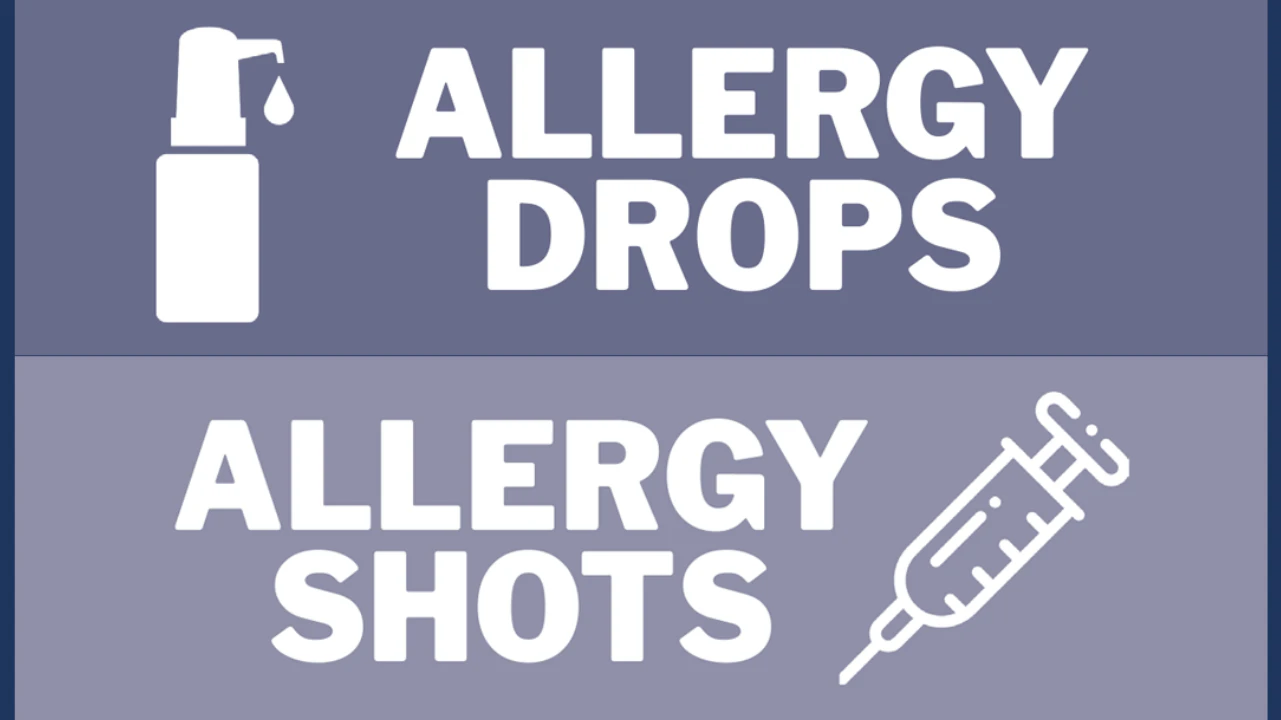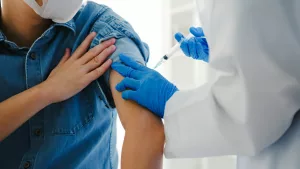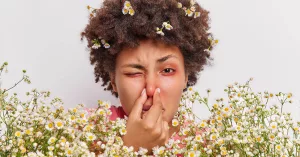Hey, you! Yeah, you—the one sneezing your way through spring or rubbing your eyes like crazy around your friend’s cat. Allergies, right? They’re the worst. I get it. That itchy, sniffly misery can make you want to hide indoors forever. But here’s the good news: there are ways to fight back without emptying your wallet. Today, we’re diving into allergy drops versus shots—two big players in the allergy relief game. I’m going to break it all down for you like we’re chatting over coffee, because figuring out the cost of allergy drops vs. shots shouldn’t feel like rocket science. Ready? Let’s do this!
What Are Allergy Drops and Shots, Anyway?

Okay, first things first—let’s get the basics straight. Both allergy drops and shots are types of immunotherapy. Fancy word, I know, but it just means they train your immune system to chill out around stuff like pollen, dust, or pet dander. Think of it like sending your body to allergy boot camp. They’re both awesome in their own ways, but they’re totally different vibes.
Allergy Shots: Picture this—you’re at the doctor’s office, and they give you a tiny injection with just a smidge of whatever’s making you miserable. Over time, those shots help your body stop freaking out when it meets that allergen in the wild. You might start with weekly visits, then taper off to monthly ones. It’s a long game—usually three to five years—but it can work wonders.
Allergy Drops: Now, drops? They’re the chill cousin. You pop a few drops under your tongue every day, right at home. No needles, no waiting rooms—just you, your couch, and a little bottle of relief. They do the same job as shots, building up your tolerance, but they’re all about that laid-back, DIY life.
So, whether you’re Team Shots or Team Drops, the goal’s the same: fewer tissues, less sneezing, more living. But here’s the million-dollar question—literally—which one’s going to save you more money? Let’s dig into that next.
Cost Breakdown: Allergy Drops vs. Shots

Alright, let’s talk cash. Because if you’re anything like me, you’re not exactly thrilled about dropping a ton of money just to breathe easier. The cost of allergy drops vs. shots depends on a bunch of stuff—where you live, your insurance, how bad your allergies are—but I’ve got a rundown to help you figure it out.
The Upfront Price Tag
Allergy Shots: Shots can hit your wallet harder right out of the gate. Why? Doctor visits. Every time you go in for a shot, you’re looking at a copay if you’ve got insurance, or maybe $20 to $100 per visit if you don’t. In the beginning, you might be trekking to the clinic every week. Do the math—four visits a month at $50 a pop? That’s $200 just to kick things off. Ouch.
Allergy Drops: Drops are a little kinder upfront. You’ll need a consult with an allergist to get started—fair enough—but after that, you’re home free. A month’s supply might run you $50 to $200, depending on what allergens you’re tackling. No weekly appointments, no extra fees. It’s like subscribing to allergy relief without the hassle.
The Long Haul
Allergy Shots: Here’s where it gets interesting. After a few months, shots shift into maintenance mode—maybe one visit a month. If each shot’s $50, that’s $600 a year. Over five years? $3,000. Not cheap, but if your insurance kicks in, it could drop way lower. Still, that’s just the shots—add in travel or time off work, and it creeps up.
Allergy Drops: Drops keep it steady. Say you’re paying $100 a month—that’s $1,200 a year, or $6,000 over five years. Wait, hold up—that’s more than shots! But don’t panic yet. There’s a twist coming, and it’s all about those sneaky extra costs.
Hidden Costs: Time, Travel, and Sanity
Shots aren’t just about the price of the needle. Every trip to the doctor costs you time—driving, parking, waiting. Maybe it’s $10 in gas or an hour you could’ve spent binge-watching your favorite show. Over a year of weekly visits, that’s 52 hours and who-knows-how-much in coffee to stay awake. For me, that’s a dealbreaker—I’d rather be cozy at home than stuck in traffic.
Drops? Zero travel. You’re sipping your morning tea, popping those drops under your tongue, and boom—done. No gas, no parking, no “Sorry, I’m late” texts to your boss. So even if the sticker price looks higher, you’re saving in ways that don’t show up on a receipt. Pretty sweet, right?
Insurance: The Wild Card
Here’s the kicker—insurance can flip the whole game. Shots are old-school, so lots of plans cover them, at least partly. Copays might be $10 or $20 instead of full price. Drops, though? They’re newer, and some insurance companies are still like, “Eh, not sure about this.” You might get full coverage, partial, or nada. A friend of mine got lucky—her plan covered drops, and she’s saving big. Check with your provider, because this could make or break your choice.
Let’s put it all in a handy table so you can see it at a glance:
| Factor | Allergy Shots | Allergy Drops |
|---|---|---|
| Upfront Cost | Higher (visits add up) | Lower (just the drops) |
| Long-Term Cost | Cheaper with insurance | Steady, no extras |
| Time | Lots of trips | Quick at home |
| Travel Costs | Gas, parking, ugh | Zero! |
| Insurance | Usually covered | Hit or miss |
See what I mean? It’s not just about the dollars—it’s the whole picture. If you’re all about saving time and keeping things simple, drops might be your vibe. But if insurance is on your side, shots could be the budget-friendly champ.
Do They Actually Work? Effectiveness Check

Okay, cost is huge, but let’s not kid ourselves—you’re not here to throw money at something that doesn’t help. So, how do these two stack up when it comes to kicking allergy butt?
Allergy Shots: The Heavy Hitter
Shots have serious street cred. They’ve been around forever—well, since like 1911, according to a study from the American Academy of Allergy, Asthma & Immunology —and they’re gold for severe allergies. We’re talking up to 80% symptom relief for some folks. That’s like going from a sneeze-fest to a stroll in the park. But it’s not instant—you’re in it for months before the magic really kicks in.
I knew a guy—let’s call him Mike—who had allergies so bad he’d miss work every spring. Shots turned his life around. Took a year to feel the difference, but now he’s out hiking instead of hiding. If your allergies are next-level, shots might be your MVP.
Allergy Drops: The Slow Burn
Drops are the new kid on the block, but they’re no slouch. Research—like a review in the Journal of Allergy and Clinical Immunology—says they can cut symptoms by 30-40%. Not as dramatic as shots, maybe, but still a game-changer if you’re tired of popping antihistamines like candy. They take their sweet time too, but the payoff’s there.
My cousin tried drops for her dust allergy. She was skeptical—thought it’d be too good to be true—but after six months, she’s dusting her shelves without a tissue in sight. It’s not a miracle, but it’s pretty darn close.
Convenience: The Real MVP
Here’s where drops flex hard. Shots mean scheduling, driving, waiting—sometimes I’d rather wrestle a bear than deal with that. Plus, there’s a tiny chance of side effects, like a sore arm or, super rarely, something worse. Drops? You’re in your pajamas, done in 30 seconds. Side effects are usually just a little mouth itch that fades fast. For busy bees like us, that’s a win.
So, shots might pack a bigger punch, but drops keep it easy. Which vibe are you feeling?
Which One’s Right for You?

Alright, decision time. You’re probably sitting there like, “Cool, but what do I pick?” Don’t sweat it—I’ve got your back. Let’s figure this out together.
Your Wallet’s Vote
If money’s tight, peek at your insurance card. Shots might be a steal if they’re covered. No insurance? Drops could save you from those endless copays and gas bills. Crunch the numbers—add up a year of shots with travel versus a year of drops. What’s the damage?
Your Life, Your Rules
Are you a planner who’s cool with doctor dates, or do you thrive on flexibility? Shots need commitment—like a gym membership you actually use. Drops are more like a Netflix subscription—there when you need ‘em, no fuss. I’m a drops girl myself; I’d lose my mind scheduling shots around my chaos.
How Bad Are Your Allergies?
Mild sniffles? Drops might do the trick. But if you’re wheezing like a broken accordion, shots could be your heavy artillery. Severity matters—don’t skimp if you need the big guns.
Where Can You Get Them?
Wondering where to get allergy shots? Pretty much any allergist’s office has you covered—they’re everywhere. Drops might take a little hunting; not every doc offers sublingual immunotherapy yet. Call around, ask questions. You deserve a provider who knows their stuff.
➤ Wondering “where can I get allergy shots”? Find the answer in our article: Where to Get Allergy Shots: Your Path to Sweet Relief.
Wrapping It Up: Your Allergy Adventure
So, here we are—end of the road, but the start of your allergy-fighting journey. Shots or drops, there’s no wrong answer—just the one that fits YOU. Me? I’d go drops for the chill factor, but maybe you’re all about that shot life. Either way, imagine a future with less sneezing, fewer tissues, and more cash in your pocket. Doesn’t that sound amazing?
Don’t go it alone, though. Chat with your allergist—they’re the pros. And hey, if you’ve tried either, spill the tea in the comments! Did shots save your spring? Are drops your daily savior? I’m dying to hear your story. Let’s keep this convo going—because no one should suffer through allergies without a friend in their corner. Here’s to breathing easy, my friend!

























Leave a Reply
You must be logged in to post a comment.